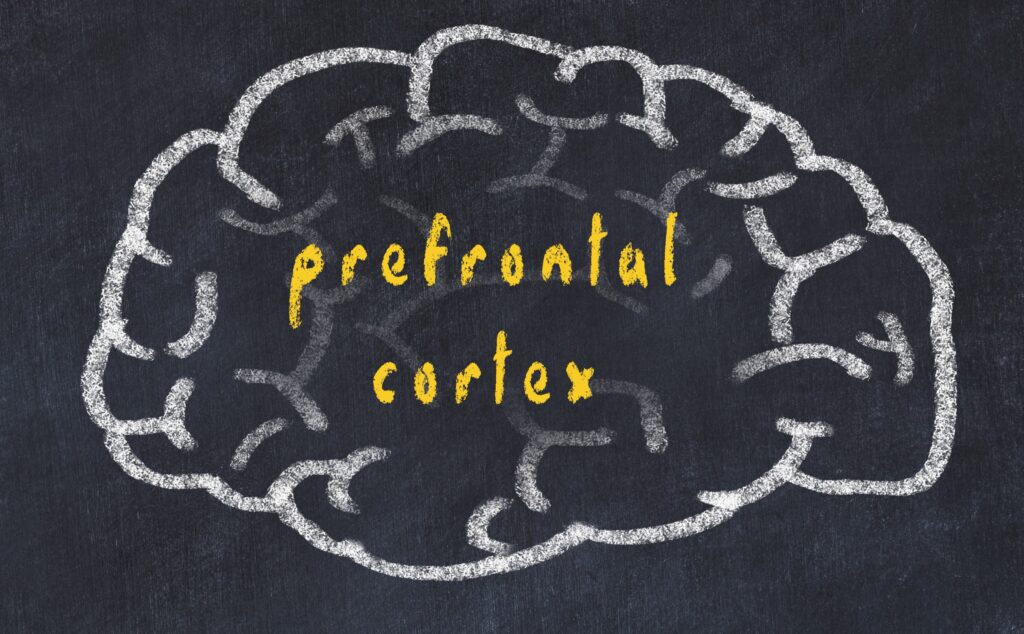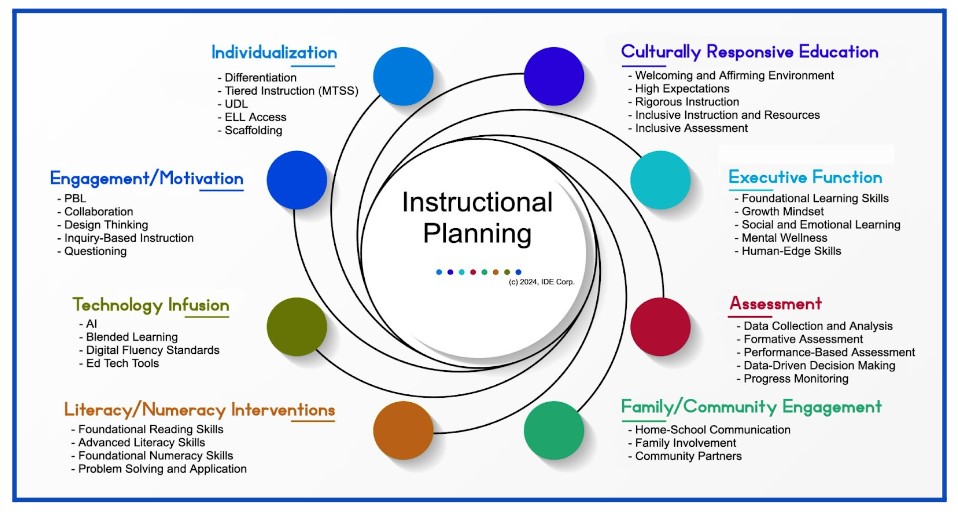Part 1 of our Blog Series on the Components of Intentional Instructional Planning
Building students’ executive function and strengthening a multi-tiered system of supports (MTSS) are inextricably linked — one builds the other and vice versa. A culture committed to the success of MTSS reflects the belief that all systems and structures aimed at meeting the needs of students are asset-based, proactive, and preventative. Learning environments and instructional planning that supports executive function can fuel student success in countless ways, including the following:
Strengthening Social-Emotional Learning (SEL) Through MTSS
Dr. Nancy Sulla’s book Building Executive Function: The Missing Link to Student Achievement shows that the foundation for all learning is strong executive function. The best lesson — whether whole-group, small-group, or one-on-one — will fall short if students lack the executive function skills for academic success.
A key component of MTSS is building students’ social-emotional learning (SEL) competencies. These include the ability to understand and manage emotions, set and achieve positive goals, feel and show empathy for others, establish and maintain positive relationships, and make responsible decisions in order to achieve success in school and life. These skills depend on the prefrontal cortex of the brain and executive function.

Maximizing Small-Group Instruction Through Executive Function
Impactful small-group instruction depends on teachers having both targeted instruction for the small group and meaningful learning for the rest of the class. Both interactions depend on students’ mastery of executive function skills, such as focus, following multiple steps, catching and correcting errors, setting and working toward goals, and persisting — to name a few. Executive function is built through the strategies used and the questions asked while students are working one-on-one and in small groups with the teacher. Students both build and depend upon their executive function skills to persist, focus, problem-solve, collaborate, and more when engaged in more independent activities and learning centers. These skills depend on the prefrontal cortex of the brain and executive function.

Providing Asset-Based, Personalized Learning
Student success depends on their academic, social, emotional, and behavioral needs being met. Providing personalized learning to students requires them to have the ability to access the learning. Students also need a variety of ways to engage, coupled with the strategies and tools they need to succeed. To engage in personalized learning, students need the ability to set goals, monitor performance, initiate a task, and reflect on their own progress. These executive function skills depend on the prefrontal cortex of the brain, and can be nurtured in a personalized learning environment.
Engage in a facilitated online course in building executive function:
Create a culture of professional learning for a full faculty in building executive function:
Support for Intentional Instructional Planning
Intentional instructional planning is fueled by collective teacher efficacy and enhanced through collaborative professional learning. Engage individual teachers and teacher teams in one of our Virtual Learning Communities (VLCs) for specific targeted support in the components of intentional instructional planning. Create a culture of professional learning through one of our online, on-demand Professional Learning Experiences.


 In this course, participants will leverage choice and technology to provide students with the ultimate differentiated learning environment. They will develop differentiated digital activity lists rooted in rigorous instruction that offer multiple ways to learn and apply content. Participants will explore autonomy, purpose, and mastery as motivators in all learning environments. They will design differentiated activity lists to put students in charge of their own learning, creating a structure that allows students to make decisions within a structured framework. Making informed decisions is an essential life skill that teachers can support with intentional classroom practices.
In this course, participants will leverage choice and technology to provide students with the ultimate differentiated learning environment. They will develop differentiated digital activity lists rooted in rigorous instruction that offer multiple ways to learn and apply content. Participants will explore autonomy, purpose, and mastery as motivators in all learning environments. They will design differentiated activity lists to put students in charge of their own learning, creating a structure that allows students to make decisions within a structured framework. Making informed decisions is an essential life skill that teachers can support with intentional classroom practices. Participants in this course will use Reinventing the Classroom Experience by Dr. Nancy Sulla as a resource. The assigned book must be
Participants in this course will use Reinventing the Classroom Experience by Dr. Nancy Sulla as a resource. The assigned book must be